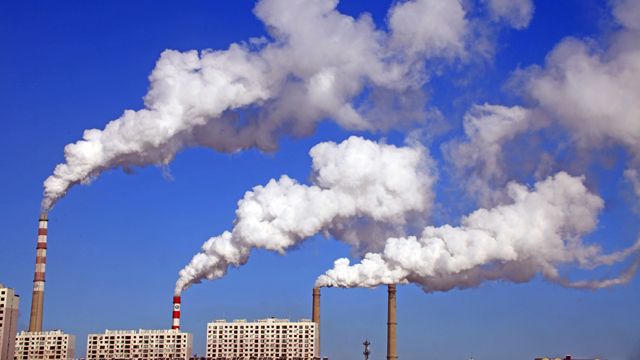
There’s going to be a long fight over the Obama administration’s new carbon emissions caps, and it’s just getting started. But today brings encouraging news from beyond our borders: As if on cue, the world’s biggest polluter, China, announced that it too would cap emissions by 2016.
As John Upton reports at Grist, world leaders are “cautiously relieved” by yesterday’s EPA announcement. That’s important, especially going into the Paris climate talks in 2015, which many advocates see as the international community’s last chance to broker an agreement that could avert the worst effects of climate change.
Until now, the global discussion on climate change — and attempts to establish treaties to reduce emissions — has been put on hold by the United States’ unwillingness to commit to concrete targets for reducing emissions. But Obama’s new rule — coupled, perhaps, with his administration’s other environmental initiatives, such as the new fuel efficiency standards and emissions standards for future power plants — could be a turning point.
China and the US had been caught in a stand-off that blocked global progress on preventing global warming. China emits far more than the US, but only passed the US in 2006. For a century and a half before then, America and other industrialized nations led the world in pumping CO2 into the atmosphere. China, and other developing countries such as India, have argued that they shouldn’t have to cap emissions before the US does. But it appears that the stalemate is now beginning to break.
To the consternation of Republicans and a handful of vulnerable Democratic legislators, the president has taken most of his actions to address our changing climate without the help of Congress. But any new international agreement would have to make it through Congress. That’s what scuttled the 1998 Kyoto Protocol; though the Clinton administration signed it, the Senate had already passed the Byrd-Hagel resolution, which said the US should not sign any agreement at the Kyoto summit, or at other UN summits in years to come, that did not include developing countries and “would result in serious harm to the economy of the United States.”
It remains to be seen whether Congress would take a similar stance on future global agreements, but this week environmental activists are hopeful that the back-to-back announcements could be the start of some real international action on climate change.


